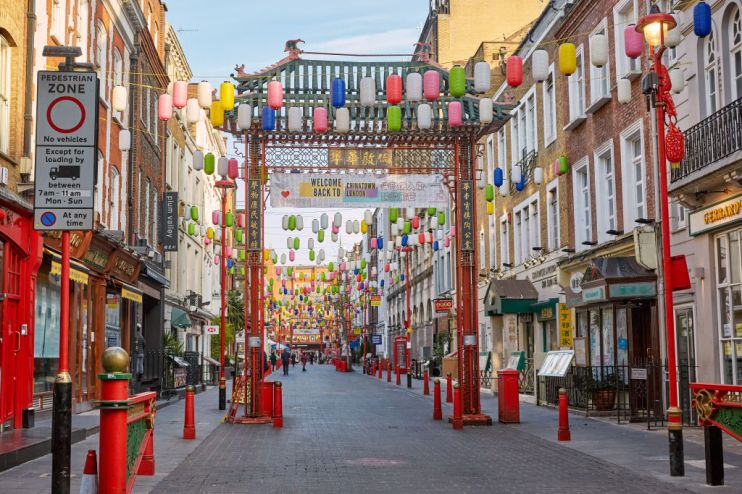Coronavirus cases in London almost double the national average as R rate hikes to 1.4

Confirmed cases of coronavirus in London are almost double the national average, the latest official figures showed, as the capital continues to record the highest level of infection in the country.
An estimated 1 in 30 Londoners were infected with coronavirus in the week after Christmas, according to data released today by the Office for National Statistics (ONS).
Around 81 per cent of positive cases in the capital showed infections of the new B117 Covid mutation, which has proven to be much more transmissible than the earlier strain.
Meanwhile, an estimated 1 in 50 in England’s wider population tested positive for coronavirus in the week to 2 January — equivalent to more than 1.1m people.
The figure means the number of coronavirus cases almost doubled compared week running up to Christmas, when England reported 645,800 new infections.
A recent surge infections has pushed the R rate up to a best estimate of 1 to 1.4 across the bulk the country.
The figure means, on average, every 10 people infected will infect between 10 and 14 other people.
London also saw the highest rate of hospitalisations of any region in England last week, when around 43 per 100,000 people were admitted to hospital with Covid-19.
It comes as hospitals in the capital issued stark warnings earlier this week that they are close to reaching capacity.
London’s hospitals are less than two weeks from being overwhelmed by Covid even under the “best” case scenario, according to official briefings leaked to the Health Service Journal.
University College London Hospital (UCLH) in Euston last week warned it is now on track to become a Covid-only hospital as it scrambles to convert operating theatres, surgical recovery areas and stroke wards into intensive care units for coronavirus patients.
London recorded a further 10,150 coronavirus cases yesterday, taking the total number of positive tests in London since the start of the pandemic to 463,539.
Figures released by Public Health England showed that Redbridge and Newham remain the capital’s worst-affected boroughs, each recording more than 22,000 positive cases since the start of the pandemic.
Prime Minister Boris Johnson on Wednesday told the Commons that current lockdown restrictions in England could last until 31 March if they fail to curb a rapid rise in infections.
“Not because we expect the full national lockdown to continue until [31 March], but to allow a steady controlled, evidence-led move down through the tiers on a regional basis,” he said, adding that measures will be relaxed “brick-by-brick, breaking free of our confinement but without risking our hard-won gains”.
The Nightingale Hospital in London is set to be open as a mass vaccination as early as next week in a bid to push down rates in the capital.
NHS staff will be used to administer vaccines at the centre, with the government aiming to vaccinate the 13m people most vulnerable people in the UK by 15 February.